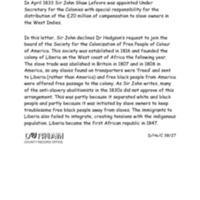
Exhibition to mark the bicentenary of the 1807 Act
Durham Record Office held an exhibition of its original documents relating to slavery, the slave trade and abolition. These include reports, maps, and a number of letters, from, for example, Sir John Shaw Lefevre (Under Secretary for the Colonies in 1833), the abolitionist James Stephen and the prominent Quaker activist Josiah Forster. The exhibition was displayed in the Record Office and toured several venues in the region. It was also used for inspiration by members of Jackass Youth Theatre, who produced the play Sharp Practice after visiting the Record Office and consulting some of the original documents on display.
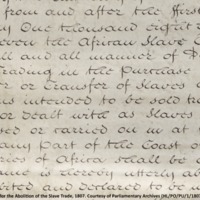
The Case for Immediate Not Gradual Abolition of Slavery
In the 1820s, the campaigner Elizabeth Heyrick became actively involved in door-to-door visits in Leicester in support of the anti-slavery cause and sugar boycotts. Her pamphlet ‘Immediate not gradual Abolition’ went into three editions during the first year of its publication in 1824. This exhibition focused on the life and work of Heyrick and in particular her efforts to abolish slavery. A Family Learning Day included ‘Elizabeth Heyrick’ in costume reading her pamphlet, storytelling, gospel music and an opportunity to sample food that would have been eaten by the enslaved.
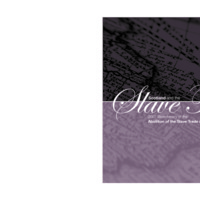
Scotland and the Slave Trade
The official publication to mark the bicentenary from One Scotland, the Scottish Executive.
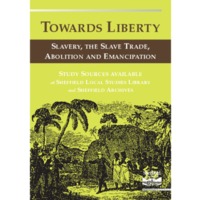
Towards Liberty: Slavery, the Slave Trade, Abolition and Emancipation
This booklet was produced to mark the bicentenary in 2007 and to highlight the material available in Sheffield Local Studies Library and Sheffield Archives for the study of slavery, the slave trade, abolition movements and emancipation. It looks, in particular, at the role of the city of Sheffield and the surrounding areas, and its local residents. Sheffield benefited from the slave system in that goods manufactured in the city's factories were used on the plantations in the West Indies and America. Sugar and coffee produced on the plantations was consumed by residents. There were active anti-slavery groups in Sheffield, including the Ladies Anti-Slavery Society, and petitioning and boycotts were common. Hannah Kilham, a Sheffield Quaker, published a memoir of her experiences in West Africa as a teacher in the 1820s and 1830s.
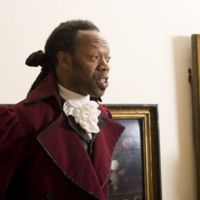
Breaking Chains - Sheffield Civil Rights
Breaking Chains - Sheffield Civil Rights was a project by Sheffield Galleries and Museum Trust to look at the slave trade and to celebrate Sheffield’s heritage by exploring the role local campaigners played in securing workers' rights. The resources targeted Key Stage 2 pupils. There was a particular focus on the visit to Sheffield by the African abolitionist Olaudah Equiano in 1790. Actor Joe Williams played Equiano in a dramatisation still available to view on the teaching resource. Featured here are some of the downloads available.
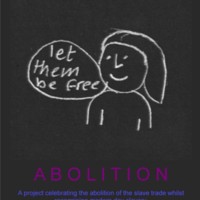
Abolition
Abolition was an art project devised and led by artist Jack Brown, in collaboration with Tidemill Primary School in Deptford. It took place during Black History Month 2007, and aimed to commemorate the abolition of the transatlantic slave trade while recognising the existence of modern day slavery. Every child in the school made a 'step', an artwork representing their perspective on the writing, discussion and petitioning that drove abolition. The children visited the Laban Building at Trinity Laban Conservatoire of Music and Dance and laid their step on the studio theatre floor. Taken together, the steps were conceived as a 'stairway to change'.
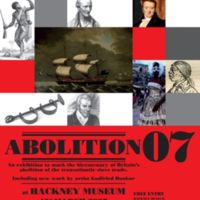
Abolition 07
Hackney Museum's Abolition 07 exhibition told the story of British involvement in the transatlantic slave trade, the resistance to it, and its abolition, and in particular emphasised the involvement of Hackney's residents in the abolition movement. The display included new artwork by Godfried Donkor in collaboration with young Hackney artists. A film of interviews with Hackney residents, Hear My Voice, was produced. Over 1200 children from Hackney Primary Schools took part in poetry workshops at the museum with poets Adisa and Baden Prince. Their poems and responses were published in the booklet 'And Still I Rise'.
The research into Hackney's connections to the transatlantic slave trade continued in 2013-2015 with 'Local Roots / Global Routes', a collaborative project between Hackney Museum and Archives and the Legacies of British Slave-ownership project.
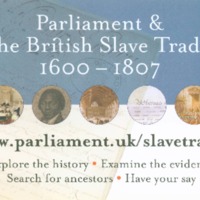
The British Slave Trade: Abolition, Parliament and People
This exhibition in Westminster Hall told the story of the pressures and events, at home and abroad, which influenced Parliament's abolition of the British slave trade in 1807. The Act itself was displayed alongside petitions sent to Parliament by the public. Also on display was Thomas Clarkson's African Box, used on his abolition tours.
As part of the wider project, the Parliamentary Education Service appointed poet and writer Rommi Smith as Parliamentary Writer in Residence to the exhibition. In a series of workshops, Rommi worked with secondary school pupils to explore the historical, social and emotional issues around the transatlantic slave trade in poetry and prose. This included letters and statements that they would have sent to the prime minister of the time, to Olaudah Equiano and other key figures. To mark the UNESCO International Day for the Remembrance of the Slave Trade and its Abolition on 23 August 2007, the Parliamentary Education Unit asked people to submit squares for a commemorative quilt. Some of these designs are available to view on the Parliamentary Archives website, which also uses original source material to tell the story of Parliament's complex relationship with the British slave trade.
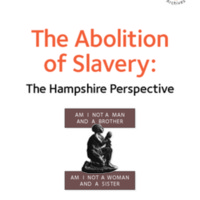
The Abolition of Slavery: The Hampshire Perspective
A touring exhibition exploring Hampshire's links with slave ownership and the abolition campaign was produced by (and featured material from) Hampshire Museums and Archives Service and Hampshire Record Office. The exhibition was on show in the Record Office foyer, before travelling to museums, schools and community centres around the county. The exhibition revealed that there were slave owners living in places in Hampshire such as the village of Hurstbourne Tarrant, and told the story of a slave-trading voyage in 1700 led and financed by men from the Titchfield area. Black servants, very likely former slaves, could be found in unlikely places such as Martyr Worthy and Bramdean. The abolition campaign was fought in the columns of the Hampshire Chronicle and the Hampshire Telegraph, and communities as diverse as Portsmouth, Whitchurch and Fordingbridge sent in petitions to Parliament on the subject. The exhibition also mentioned white slaves taken from the English coast by Barbary pirates, and the testimony of a group of emancipated slaves from Cuba who arrived in Southampton in 1855 on their way to Lucomi in Africa.
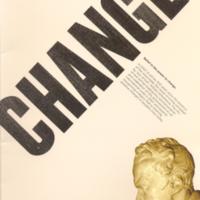
Wilberforce 2007
Wilberforce 2007 was a year-long programme of events from Hull City Council, commemorating the bicentenary and celebrating the city's diverse communities. The programme, named after 'son of Hull' William Wilberforce MP, was based around the themes of Pride, Freedom, Belief and Change. In partnership with Anti-Slavery International, Hull promoted the Fight for Freedom Petition against modern day slavery. The Wilberforce Lecture Trust held five specially commissioned lectures. The Wilberforce Weekender in July 2007 was a weekend of public events, including the Wilberforce Clipper Challenge Cup, Sankofa Sunsplash (celebrating African and Caribbean culture, food and music), Zapcat Racing, and the annual Jazz Festival. Throughout the year there were concerts and specially commissioned pieces from the Hull Choral Union, Hull Philharmonic, Hull Sinfonietta and the East Yorkshire Motor Services Brass Band. Other initiatives raised awareness of Fair Trade, and there was a variety of educational programmes and events. Funding was also made available for smaller community projects.
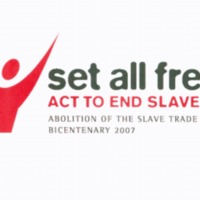
Set All Free: ACT TO END SLAVERY
Set All Free: ACT TO END SLAVERY was a project of Churches Together in England, based in London. It was also a collaboration between church-related groups, societies and organisations around the UK working together with a Christian ethos to assess the relevance of the bicentenary, and in particular the legacies of slavery. The project aimed to highlight how the values of the abolitionists can transform relationships on an individual, community and society level. The project included building a network coalition, campaigning, producing research and resources for churches, schools and individuals. Set All Free also worked closely with Anti-Slavery International and Rendezvous of Victory, a leading African community-led organisation.
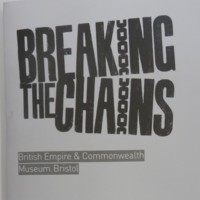
Breaking the Chains
Breaking the Chains opened at the British Empire and Commonwealth Museum to coincide with the bicentenary, and told the story of the British transatlantic slave trade and its abolition. Developed in partnership with Bristol City Council's Museums, Galleries and Archives' Service, the exhibition used artefacts, film and testimony to challenge perceptions about Britain's involvement in the slave trade and its legacy today. It featured a multimedia gallery of digital memories and feelings on the contemporary legacies of the slave trade; interactive sound stations to see and hear personal testimonies and the power of black music; and the ‘Me deya’ gallery, led by Firstborn Creatives, a collection of work from artists and communities who wished to share their creative pieces about the legacies of the slave trade. Associated events included African music for children, community dance events and public debates.
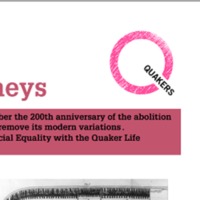
Quakers and the path to abolition in Britain and the colonies
The Society of Friends expressed its formal opposition to the slave trade in 1727, and from that date were vocal opponents of transatlantic slavery. A virtual exhibition of archived resources, ‘Quakers and the path to abolition in Britain and the colonies’, was launched online to commemorate the bicentenary. It traced the history of the anti-slavery movement from its Quaker beginnings and highlighted key events in the Quaker history of opposition to the slave trade, and was primarily based on material from the Library at Friends House. The exhibition also explained the important role played by Quaker women abolitionists through writing and poetry. The Quakers pioneered contemporary tactics such as boycotting, petitions, leafleting and poster campaigns.
Other resources to help people find out more about the bicentenary included ‘Abolition Journeys’, developed by Quaker Life Committee for Racial Equality with the Quaker Life Children and Young People’s Staff Team, designed to help people of all ages remember the slave trade and work to abolish its modern variations.
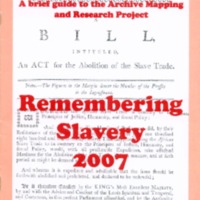
Remembering Slavery Archive and Mapping Project
Remembering Slavery 2007 involved museums, galleries and other cultural organisations across the North East of England in a programme of exhibitions, events, performances, lectures and activities to explore the themes of slavery and abolition, and identify connections with the region.
The Remembering Slavery Archive Mapping and Research Project, led by the Literary and Philosophical Society in Newcastle and assisted by local history groups, uncovered a large amount of archival material in the region’s institutions, exposing many hitherto unknown links between the North East and the slave trade. The participating record offices and libraries were Tyne and Wear Archives Service, the Literary and Philosophical Society Library, the Northumberland Record Office and the Robinson Library’s Special Collections at the University of Newcastle upon Tyne. This reassessment of the North East’s involvement in slavery and the slave trade led to new published research, including John Charlton's 'Hidden Chains: the Slavery Business and North East of England 1600-1865'. There was also a lecture programme at the Literary and Philosophical Society, including talks by Professor James Walvin. Several of the project volunteers published essays based on their research in 'North East History 39' (North East Labour History Society, 2008). The North East Slavery and Abolition Group was established among the project volunteers, and further work on slavery and abolition was included in the Society’s North East Popular Politics project (NEPPP), 2010-13. Much of the material found in the 2007 project has been loaded onto the NEPPP database.
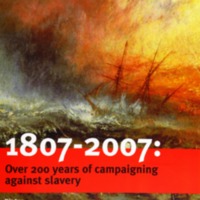
Anti-Slavery International, 2007
The world's oldest human rights organisation, Anti-Slavery International, led several initiatives in response to the bicentenary. The Fight for Freedom 1807-2007 Campaign, launched in 2005, called for measures to address the continuing legacies of the slave trade. The publication '1807-2007: Over 200 years of campaigning against slavery' looked back at the work of Anti-Slavery International and its predecessor organisations. The Spotlight on Slavery series of exhibitions and events included debates, lectures, film screenings and photography exhibitions. Anti-Slavery International also collaborated with a number of other organisations and projects in 2007, including Rendezvous of Victory and Set All Free, and contributed exhibition material to various exhibitions around the UK, including the Remembering Slavery exhibition at the Discovery Museum in Newcastle.